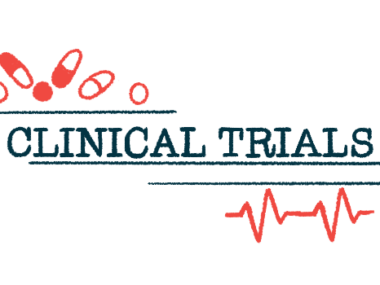Canada clears fast fingerstick test for hepatitis C
1-hour test may speed diagnosis and monitor treatment response
Written by |

A one-hour point-of-care test for hepatitis C has been cleared for use in Canada, which could help accelerate diagnosis and monitor how people with the viral disease respond to treatment.
The test, called Xpert HCV VL Fingerstick, uses a single drop of blood to provide results in about an hour, its maker Cepheid said in a press release. It is expected to start shipping to customers in Canada this month. The test was cleared for use in the U.S. last year.
“Timely diagnosis is key to identifying and treating people with hepatitis C,” said Jordan Feld, MD, a professor of medicine at the University of Toronto and the director of the Toronto Centre for Liver Disease. “Point-of-care tests allow us to diagnose people wherever they are, without necessarily needing them to come to traditional health care facilities.”
This may be especially relevant for people who have more trouble accessing traditional healthcare, such as those who inject recreational drugs — who are at a higher risk of hepatitis C — and those living in remote areas.
Hepatitis is a condition marked by liver inflammation. Hepatitis C is caused by an infection with the hepatitis C virus, or HCV, which is spread by direct exposure to infected blood, mainly by sharing needles and other drug-related equipment.
Many people who have chronic hepatitis C don’t know they have it
Most people infected with HCV will develop a chronic or long-lasting infection, which can lead to serious complications such as liver failure and liver cancer. Yet because symptoms are often subtle until serious liver damage has occurred, most people who have chronic hepatitis C don’t know it.
There are no vaccines that can prevent hepatitis C, but various antiviral treatments are available. These medications can cure the infection in most cases, but patients who do not know they are infected with HCV do not access these treatments.
Xpert HCV VL Fingerstick, run on Cepheid’s GeneXpert system, tests a drop of blood collected via fingerstick for HCV RNA, a type of genetic material. This can help diagnose patients and monitor how treatment is affecting virus levels.
The test can identify all known genetic forms of HCV in about an hour, according to Vitor Rocha, president of Cepheid. This means it can be used as a point-of-care test, allowing people to get results at the same doctor’s visit when the test is done.
“This is the first HCV RNA detection and quantification technology sensitive enough for active case finding at the point of care in Canada,” Rocha said. “This enables diagnosis of HCV and facilitates timely linkage to care within a single clinic visit — and with this, the potential for treating more people with HCV.”
The World Health Organization has set a goal of eliminating viral hepatitis, including hepatitis C, as a worldwide health issue by 2030. Having a point-of-care test available makes this goal more feasible, Feld said, as it can make it easier to diagnose and treat people with the infection.







